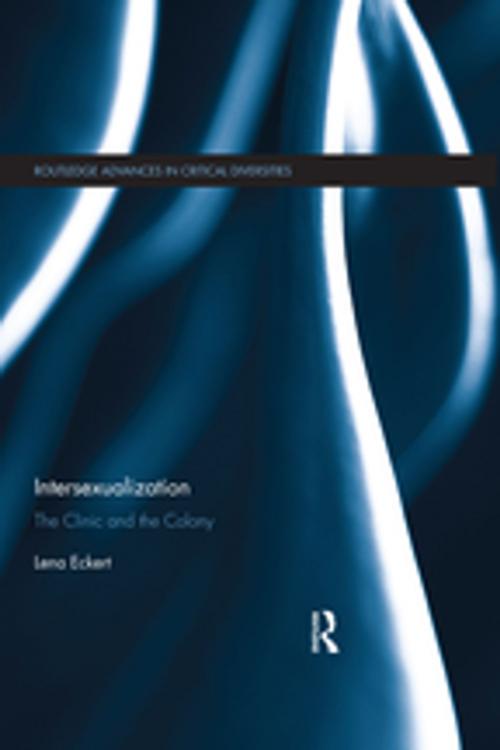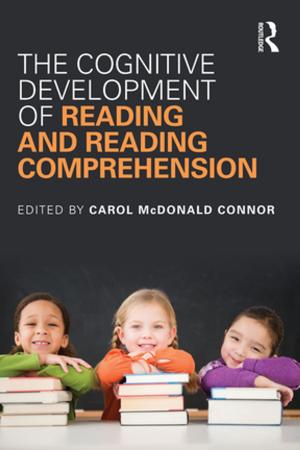Intersexualization
The Clinic and the Colony
Nonfiction, Social & Cultural Studies, Social Science, Gender Studies, Feminism & Feminist Theory, Sociology| Author: | Lena Eckert | ISBN: | 9781317274100 |
| Publisher: | Taylor and Francis | Publication: | December 8, 2016 |
| Imprint: | Routledge | Language: | English |
| Author: | Lena Eckert |
| ISBN: | 9781317274100 |
| Publisher: | Taylor and Francis |
| Publication: | December 8, 2016 |
| Imprint: | Routledge |
| Language: | English |
Since the 1970s, research into ‘Intersex’ has been a central fascination for feminist theorists seeking to make arguments about how men and women are created as social/gender categories. Intersexualization: The Clinic and the Colony takes the case of Olympic runner Caster Semenya as a starting point to explore the issue of determining sex, and the ways in which intersexuality is a ‘threat’ to the distinction between men/women, homosexuality/heterosexuality and white/black.
By focusing on the 1950s and the 40 years after, Eckert shows how what she calls intersexualization began in psycho-medical research at the Johns Hopkins Hospital in Baltimore and UCLA, and has from there spread into cross-cultural anthropological accounts conducted in Papua New Guinea and the Dominican Republic. With cross-cultural intersexualization having been largely neglected in recent literature on intersex, this timely volume describes how such intersexualization derives from the combination of medicalization and pathologization through two crucial parts. The first part, “The Clinic,” describes historical psycho-medical material engaging with hermaphroditism ranging from Greek Mythology up to today. This is followed by “The Colony,” which analyzes, in several close-readings, cross-cultural anthropological, sexological and psychoanalytical accounts contributing to cross-cultural intersexualization.
Enclosing a wide range of inter- and transdisciplinary approaches to heteronormative and dichotomously organized frames of knowledge and organization, this volume is essential reading for upper-undergraduate and post-graduate students within the fields of gender studies, social studies of medicine, anthropology,science and technology studies, cultural studies, sociology, and history of medicine.
Since the 1970s, research into ‘Intersex’ has been a central fascination for feminist theorists seeking to make arguments about how men and women are created as social/gender categories. Intersexualization: The Clinic and the Colony takes the case of Olympic runner Caster Semenya as a starting point to explore the issue of determining sex, and the ways in which intersexuality is a ‘threat’ to the distinction between men/women, homosexuality/heterosexuality and white/black.
By focusing on the 1950s and the 40 years after, Eckert shows how what she calls intersexualization began in psycho-medical research at the Johns Hopkins Hospital in Baltimore and UCLA, and has from there spread into cross-cultural anthropological accounts conducted in Papua New Guinea and the Dominican Republic. With cross-cultural intersexualization having been largely neglected in recent literature on intersex, this timely volume describes how such intersexualization derives from the combination of medicalization and pathologization through two crucial parts. The first part, “The Clinic,” describes historical psycho-medical material engaging with hermaphroditism ranging from Greek Mythology up to today. This is followed by “The Colony,” which analyzes, in several close-readings, cross-cultural anthropological, sexological and psychoanalytical accounts contributing to cross-cultural intersexualization.
Enclosing a wide range of inter- and transdisciplinary approaches to heteronormative and dichotomously organized frames of knowledge and organization, this volume is essential reading for upper-undergraduate and post-graduate students within the fields of gender studies, social studies of medicine, anthropology,science and technology studies, cultural studies, sociology, and history of medicine.















